Clancy Tucker's Blog, page 219
June 16, 2016
17 June 2016 - MONETTE BEBOW-REINHARD - Guest Author

MONETTE BEBOW-REINHARD- Guest Author -
G'day folks,
Today, I interview an interesting author from the USA.
Welcome, Monette ...
1. TELL US A LITTLE ABOUT YOURSELF AND YOUR WRITING JOURNEY.
I think I was pretty much born into it. My mother was a writer. My grandmother was a Grimm. When I found that out, I decided at a very early age that I was going to publish my own Grimm Fairy Tales. I still remember my first story, it had a cave in it. Now I’ve contracted to publish Grimms American Macabre with All Things that Matter Press for this fall, and there’s a story with a girl and a cave!
2. WHEN AND HOW DID YOU BECOME A WRITER?
I did some writing in high school. Once we performed a Monkees’ sketch I wrote, and I adapted a Smothers Brothers routine for Christmas that we performed. I also love acting, and writing scripts. I got to write my own graduation speech, and performed an Easter story over the PA. My first post-high school writing was in adapting my favorite novel into a movie script. I actually got a response from the author of the book, who said he’d already adapted and made it into a movie! I checked it out and thought it was awful. I wrote him back and said we could do better. He never responded. Was that the wrong thing to say?
3. WHAT TYPE OF PREPARATION DO YOU DO FOR A MANUSCRIPT? DO YOU PLAN EVERYTHING FIRST OR JUST SHOOT FROM THE HIP?
Shoot from the hip and then plan! Seriously, that’s the only way. I believe that we should go with our flow, with our idea, as far as it can take us, and then, when (if) we get stuck, write up the outline, the story treatment – the nugget of what it’s supposed to be in the shortest words possible from beginning to end. So many writers think that planning kills inspiration and creativity – it doesn’t! The creativity is not in the idea or the basic plot that you want to develop. It’s in the way you write it. Believe me, characters DO take over, and the outline can be adapted to them along the way. But I know a lot of writers (I used to run a support group) who get stuck in chapter three and never get any farther. That’s where I say, write out what you want the rest of the book to be. That always keeps me going.
4. WHAT DO YOU ENJOY MOST ABOUT BEING A WRITER?
Writing. I’m not very sociable and it gives me an excuse to be alone! Seriously, where’d all my friends go? I’ve got a lot of “stuff” in my head. I’ve travelled around the country doing research and I rarely listen to music. I just need to hear what my head wants me to hear. That stuff from deep in the soul that keeps clamouring to get out. (I love all this spellchecking to the British style.)
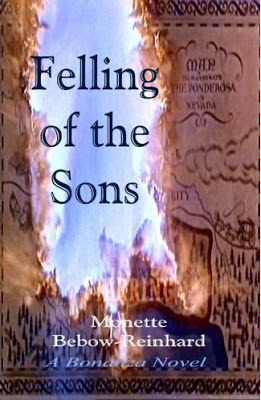
5. WHAT IS THE HARDEST THING ABOUT BEING A WRITER?
Marketing – both trying to find a publisher and trying to find a reader. A lot of authors focus on getting reviews, and a lot of reviews are lies. I only want honest ones. And I really hate it when someone takes a free copy and then refuses to review, as promised. I really hate that. I tell them a bad review is better than not doing it. All my reading now is to review, and I never let anyone down. If I end up not reviewing, I tell them why. Mostly it’s because they’re self-published and I can’t get beyond the first chapter. I won’t waste my time. Let it be known that from hereonin (isn’t that a word?), I will not accept a review copy of a self-published novel. I do, however, edit them for people. It’s like a side job. I think it’s become harder to get our novels read, once published traditionally, since so many people now can self-publish, and many do so too quickly. Good novels get lost in a swamp of bad material.
6. WHAT WERE YOU IN A PAST LIFE, BEFORE YOU BECAME A WRITER?
Currently I have an editing job. I’ve been paid to edit other people’s work, too. But I’ve had a long office career, because I like to type. I’ve been “becoming a writer” for 30 years. It’s a process. My first official submission came when I created a short story while being bored on a temp office job. And boy, did I do that wrong!
7. WHAT IS YOUR GREATEST WRITING ACHIEVEMENT?
I think sticking with my vampire, Arabus Drake, through his many incarnations, and finally seeing that book published. The comments I’ve been getting, too, mean that I’ve accomplished what I’ve set out to do with it. I’ve got several readers reading review copies. One was blown away by the beginning and I’ve not heard from him since, and another says she’s still reading but it’s slow (meaning, I think, that the read is an unusual one for her. I hope.)
But I have to say that getting meet David Dortort and getting him to agree to allow me to publish my two Bonanza novels was the greatest moment of my life.
8. WHAT ARE YOU WORKING ON AT THE MOMENT?
Two more Arabus Drake books: Misadventures in Death & Friendship, and BloodLove. Kind of working on them simultaneously. The nice thing is that the three books don’t have to be read in any special order, although it’s nice to read Death & Romance and anticipate BloodLove. It works better that way. I also have a publisher reading Sylvan Liberty, a fantasy romance. I also have two other books waiting for editing, and two other books that I’m querying on.
9. WHAT INSPIRES YOU?
I write with a lot of spirit and culture. So I think reading things that have happened in history are inspiring, since I write a lot of historical material. Bonanza was actually my first inspiration. I just loved watching them put fictional characters into real historical events.
10. WHAT GENRE DO YOU WRITE?
I got a master’s in history in 2006 and have focused on that kind of material. But throw in some fantasy, romance, and intrigue. I don’t write genre, actually, every one of my books is different. But they all have some elements in common that I think readers will come to recognize and appreciate, if they like that style.
11. DO YOU HAVE ANY TIPS FOR NEW WRITERS?
Do your homework and practice your craft. Stop expecting riches and overnight success. PLEASE submit to small presses and traditional press before self-publishing. If you do not have or cannot develop the thick skin for rejection, because you’ll get it from readers, too, find some other hobby.
12. DO YOU SUFFER FROM WRITER’S BLOCK?
Never. I always have too many projects to worry about that. Not to mention articles and other things, always something to work on. Inspiration is nice though, and it doesn’t come along too often. You have to work for it.
13. DO YOU HAVE A PREFERRED WRITING SCHEDULE?
I have a preferred social schedule. Otherwise, I’m always writing.
14. DO YOU HAVE A FAVOURITE WRITING PLACE?
Anywhere, anyplace, anytime. I actually don’t like my desk much. It’s not cozy since I had to move to an apartment last year.
15. WHAT IS YOUR GREATEST JOY IN WRITING?
Creating characters and seeing them take on a life of their own.
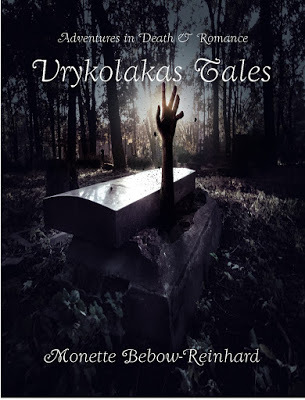
16. WHO IS YOUR FAVOURITE AUTHOR AND WHY?
You know, I used to be in love with Stephen King’s work. Little by little I stopped admiring him. Oh, I know he creates great characters and settings. But for heaven’s sake, is it that hard for him to write a satisfying ending? I still hate Pet Semetery. I don’t devour everything he writes anymore. I love Umberto Eco’s work, partly because he’s hard to read. You don’t read and toss, but say, hmmm, I think I missed something, I’ll have to read it again. I like to think I create work that’s re-readable, with depth and layers. Otherwise, no, no one comes to mind. Except Heinlein. I’ve always loved Heinlein. I wrote a story treatment for one of his novels, tried to get permission for the script, found out someone else has it and it’s in “development hell.” Shame.
17. WHAT’S THE GREATEST COMPLIMENT YOU EVER RECEIVED FROM A READER?
That my book stirred up all sorts of emotions, or that she’s read it three times already. I also recently did a new beginning to my KDP book, based on early reader responses, and the reader thought the changes were awesome.
18. WHAT WAS THE WORST COMMENT FROM A READER?
Oh, I have faced a lot of one star reviews for Bonanza because there are so many jealous fanfic writers out there! I mean, you can tell when someone is just being mean or trying to bring you down. It just makes them look petty, and actually probably even aids in more sales. But other than that, I guess what’s most hurtful, especially with Mystic Fire, is that there’s one element early in the book that it seems some readers can’t get past. I mean, it’s real, and it happens, but they think it doesn’t belongs in a Bonanza novel. But it’s there for a reason, and I’m always very sorry when they don’t see that.
19. WRITERS ARE SOMETIMES INFLUENCED BY THINGS THAT HAPPEN IN THEIR OWN LIVES. ARE YOU?
I think it has to be yes for all writers, right? But I still remember the day I had four active projects, all dealing with death, when I first noticed my “theme.” My sister died when she was four, back when I was six and had just started watching Bonanza. I think that’s part of what led me to being a Bonanza writer, because to get to sleep at night, I used to rewrite the episodes in my head. Then a couple years after Adam (my favourite) left the Ponderosa, my dad died. You begin to look for ways to keep people alive in your writing, or deal with death in unusual and sometimes remarkable ways, with a loss so great. I’ve never felt loved like that since. Now, as I write this, I face the funeral of my mother ahead of me. And while hers is not as traumatic as the other two, I think my lifelong dealing with death is what’s keeping me sane now and grounded in my grief. And yes, there’s a lot of pagan and reincarnation spirit in my books, for that reason, too. We do not die. Our matter disperses into another plane and reassembles. I think there is such as a thing as a soul atom.
20. OTHER THAN WRITING, WHAT ELSE DO YOU LOVE?
Horses. Bikes. Being outside. Doing anything outside. Except ticks. I don’t like ticks. I need to be active, especially since writing is so sedentary. Now that I have a full-time editing office job, it’s even harder. The weight is slapping itself back on, so now it’s diet down time again! And my granddaughters – but I rarely get to see them, since they leave in Seattle. But they are so precious. It’s hard to explain how they make me feel.
21. DID YOU HAVE YOUR BOOK / BOOKS PROFESSIONALLY EDITED BEFORE PUBLICATION?
I’m actually a professional editor myself. And I tend to put them through a lot of drafts. So that answer is definitely no. I do know how hard it is to edit your own work, though. I try to find an interested reader or two. But it’s another reason I don’t self-publish. We always benefit from other eyes. Always.
22. DESCRIBE YOUR PERFECT DAY.
I get a response to a submission and it’s a yes. Everything is cherry after that.
23. IF YOU WERE STUCK ON A DESERT ISLAND WITH ONE PERSON, WHO WOULD IT BE? WHY?
Alive or dead? I have four heroes in life and would love to chat with any one of them. If alive, I would have to say Armand Assante, just because he fascinates me, and is the role model for Arabus Drake. I once wrote and told him he’s that role model, and he sent me a glossy back, autographed, “Monette, I embrace you.” I wish.
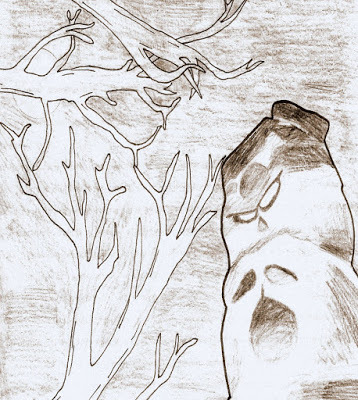
24. WHAT WOULD YOU SAY IF YOU HAD THE CHANCE TO SPEAK TO WORLD LEADERS?
PEACE PEOPLE! What are you waiting for? We can share the planet, but we have to stop fighting first. Oh, and find a way to give the Black Hills back to the Sioux, okay?
25. WHAT ARE YOUR PLANS FOR THE FUTURE?
I am in the third “trimester” of my life, so to speak. My 30-year plan is to work until I’m 70, travel until I’m 80 and then write my memoirs. I don’t believe in having a bucket list. Death, of course, could interrupt those plans.
26. WHAT ARE YOUR VIEWS ON BOOK TRAILERS? DO THEY SELL BOOKS?
My thought is no. But then I don’t feel like doing them, so I’ll never know. I put some nice videos at YouTube about the Ponderosa Ranch, when it was still open and fun to visit. But I don’t think it helped me sell a single Bonanza novel.
27. DO YOU SEE YOURSELF IN ANY OF YOUR CHARACTERS?
I think I do. I believe in honesty and truth above all things. I hate violence, so I have a vampire who is very conflicted about his demonic thirst. We all have conflicts in us, I think, so he was pretty easy to write. The Cartwrights reflect all my moral values, so that was a natural for me. They often say not to shoot if there was another way out of a problem. And Ben Cartwright sure knew how to raise his family without playing favorites. Family is very big in my books.
28. DOES THE PUBLISHING INDUSTRY FRUSTRATE YOU?
I just had a conversation with a publisher before he agreed to read my submission. He won’t work with bookstores anymore because they return the unsold copies in unusable condition. That’s a very valid point. But there are a lot of indie bookstores out there that don’t do that. They don’t carry more than a couple copies of a book at time, of course, but they generally never return. I think publishers need to start working with them, especially since POD is more popular now. I don’t like the trend of making authors take on all this expense. And, plus, they can maintain a database of these locations for their many authors. There’s a lot to be frustrated by. Solstice recently put out the print edition of Vrykolakas Talesand the back cover has open space – they left off their logo! That makes it look self-published when I sell it. I don’t get why the industry isn’t evolving a little better than it is. We need to demand that authors who are self-published have to relate that up front. It indicates lack of oversight, in general.
29. DID YOU EVER THINK OF QUITTING?
All the time! But with two new contracts this year, and a short story winning an honourable mention due out soon (and a cash award coming), those days are fewer now. I just can’t think what else I’d do to fill up my time. Take up crocheting again? Ugh. I can’t watch a lot of TV, it puts me to sleep. I love movies, and writing scripts is fun, but I can see myself giving that up if I can’t get anywhere with my newest creation.
30. WHAT WAS YOUR FAVOURITE MANUSCRIPT TO WRITE? WHY?
I have to say Felling of the Sons because of the easy way that novel fell together, and because, while I had the time to edit it, I loved reading it every time. I felt it was so good that I had to pursue David Dortort to get permission. And it started as short story! There was just too much there, and it became a novel. But yes, I did have an outline of sorts, and yes, it did change a lot from what I had originally envisioned. I love my Vrykolakas Tales but the process was agonizing. It was even agented. It went from third person to first person to third person, I rejected four contracts, I got advice on fixing the beginning – and it wasn’t until I listened to that advice that it finally got a decent enough contract. I think Mystic Fire really succeeds, but I had to write it too quickly and my publisher wouldn’t let me make it as long as it needed to be.
31. HOW WOULD YOU DEFINE ‘SUCCESS’ AS A WRITER.
Loving to write is first. Paying attention to where you need to be at all stages of the process, second. Doing things the right way, third. And finding readers – actually that comes after the other three, but without that, you have nothing.
32. WHAT SHOULD READERS WALK AWAY FROM YOUR BOOKS KNOWING? HOW SHOULD THEY FEEL?
I do like to think I imbue my books with a lot of interesting information. I don’t believe in following any formulas, and use lots of real history. In fact, in my first two Bonanza novels I used footnotes! Although in Felling they don’t look right in Kindle format.
I also put for further reading at the back of my Vrykolakas book to show the research I used. The death scene, for instance, was created from the Tibetan Book of the Dead. I like to think I make readers feel more in touch with their humanity when they read my books. What it’s really like to be a human being, no matter your skin color or culture.
33. WOULD YOU LIKE TO HAVE YOUR BOOKS MADE INTO MOVIES? EVER WRITTEN A SCREENPLAY?
I have about eight movies scripts written. Several have won minor awards. My favorite one is based on my nonfiction book that I haven’t found a publisher for. Following Orders tells the real story of what happened to Custer at the Little Bighorn, but it’s fictionalized because I put my research of my great-uncle into it. The book is called Civil War & Bloody Peace: following orders and follows the orders of my grandfather’s great-uncle Henry Bertrand, who was in the Civil and Indian wars. It just amazes me I can’t find a publisher. But then, how many want to learn that it was Grant’s fault Custer got killed? I wouldn’t mind if someone else wanted to adapt one of my books. I’m hoping someone picks up Dancing with Cannibals, because I won’t be doing that one myself.

34. HOW MUCH THOUGHT GOES INTO DESIGNING A BOOK COVER?
Sometimes I get ideas right off. Sometimes I don’t. With Vrykolakas Tales, the publisher went with a safe bet. I had a different idea that I thought would have been cooler. Since they didn’t use my idea, they should have at least had a bouquet of half dead roses in that hand bursting from the grave. With Dancing with Cannibals, I wanted a mask on the cover, but originally I thought of something a little more stereotypical. I was so happy of the work my son Adam did on that cover. For Grimms American Macabre, coming out in the fall, I really want the old house my dad grew up in, that was in Grimms, Wisconsin. His mother was a Grimm. And for Sylvan Liberty, the one I just found a publisher to read, I need a tree in a forest shaped like a woman. I found one once, but I wasn’t sure how to get the rights to it. So I’ll need someone who can draw.
35. WHAT’S YOUR ULTIMATE DREAM?
An academy award! Seriously! And giving a book presentation at Barnes and Noble. Both seem out of reach.
36. WRITING IS ONE THING. WHAT ABOUT MARKETING YOU, YOUR BOOKS AND YOUR BRAND? ANY THOUGHTS?
Oh, such a tough question. I just came through a book launch with little to show for it. I’m not a big fan of advertising on social media anymore. I wanted to get press releases in papers and my hometown paper said they don’t publish them anymore. I found a site recommended by a marketing expert – newswire.com – a little pricey but supposed to get you in newsprint. I still think that’s where you get attention, because of how people fight for space there. Anyone can do social media. It’s easy to tune out with all those voices. What works? Well, I’ve had to buy quite a few copies myself for reviews, and giveaways. Getting people to read and spread the word is probably the best. But honestly, I wish I knew. Bonanza novels continue to sell because of the fan base and lack of competition. My Vrykolakas will just have to catch on, somehow. I think it will. I think it should.
37. ARE YOUR BOOKS SELF-PUBLISHED?
Just Dancing with Cannibals. Here’s the thing – since it’s co-authored, and he lives in South Africa, and he was desperate and didn’t want to wait for the traditional route, he forced me to self-publish by finding another editor, leaving my name off, and publishing it at Amazon. When I found out, I had it removed, did a couple more edits and put it up there for us. He had no right to do that, but in his defense, he was desperate. I feel bad about that. I’m trying to get the print copy ready now.
38. DESCRIBE YOURSELF IN FIVE WORDS.
I don't like me much.
39. WHAT PISSES YOU OFF MOST?
When other people don’t like me. I think I’m nice, most of the time, but I have these negative thoughts; I tend to think the worst of people sometimes. Not everything is about me! I have to keep reminding myself of that. But I don’t make good first impressions and I don’t know what to do about that so I have to accept me the way I am. Since other people don’t like me, I guess I don’t like me either. I don’t do well in public, unless I’m performing or presenting. I had a boyfriend once, who said something profound. He said, you’re just acting all the time, aren’t you. I love honesty but people see me as insincere. Did I mention conflict earlier? We all have them.
40. WHAT IS THE TITLE OF THE LAST BOOK YOU READ? GOOD ONE?
No, it was crap. I had to read it for a review. Which is why I’m saying I won’t read self-published to review anymore.
41. WHAT WOULD BE THE VERY LAST SENTENCE YOU’D WRITE?
Huh. Well, I do plan to write until I die. I like Agatha Christie in that respect, and some of her books are good, too, but after a while they’re hard to tell apart. Who was it who always ended with “And so it goes.” Garrison Keeler? I like that. Something like that. “Humanity as seen from the eyes of Death” is the new pitch for Vrykolakas Tales. And maybe at the end, I’ll have that answer I’ve been looking for – why do humans have consciousness?

42. WHAT WOULD MAKE YOU HAPPIER THAN YOU ARE NOW? CARE TO SHARE?
I just want to be loved, I guess. But I think I’m too needy. If I could learn to accept myself, maybe people could learn to accept me, and then I’d be happy. Honestly, when I got the contract for Vrykolakas I expected to be ecstatic, I’d been trying for so long. But instead, I felt like Droopy Dog. So it’s not being published that does it—what will? I think being needed. It feels like no one needs me. I have to work on that, but sincerely, with having to move away from my husband to take this job, and him not caring, there doesn’t seem to be anything else I can do. Here I am and this is what I have to deal with.
43. ANYTHING YOU’D LIKE TO ADD?
Being a writer is not all glamor and riches and fun. Don’t go into it for that. Be sincere in having something to say. Or you’re just wasting everyone’s time. And if you have to write genre, find a way to be different!
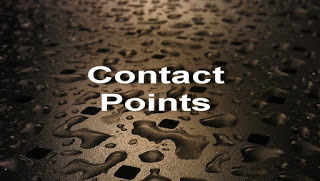
WEBSITE
AMAZON

Clancy's comment: Many thanks, Monette. Love your answer to number 43!
I'm ...


Published on June 16, 2016 15:46
June 15, 2016
16 June 2016 - ERROL FLYNN WISDOM

ERROL FLYNNWISDOM
G'day folks,
Here are some comments made by the famous Errol Flynn. Did you know that he was born in Australia?
It isn't what they say about you, it's what they whisper
I am not biased against the rich because they are rich, but the most lively people are those without money who would like to have some
Someone, I don't know who- it might have even been me- said, 'Any man at the age of twenty-five who is not a Communist has no heart: any man who is still is at the age of thirty-five has no head.'
Man's indecency to man all over the world rules out the idea of humanity as an actuality. It is a dream of young idealists. In practice a misnomer
I crave the indulgence of my senses but this is countered by an interior desire that is even keener than my senses to know the meaning of things

I want faith; but I am faithless
I enter a whorehouse with the same interest as I do the British museum or the Metropolitan - in the same spirit of curiosity. Here are the works of man, here is an art of man, here is the eternal pursuit of gold and pleasure. I couldn't be more sincere. This doesn't mean that if I go to La Scala in Milan to hear Carmen I want to get up on the stage and participate. I do not. Neither do I always participate in a fine representative national whorehouse - but I must see it as a spectacle, an offering, a symptom of a nation.
I portray myself as wicked, hoping I will not be regarded as wicked. But I may be wicked in the biblical sense
I am on the side of the underdog except when I am on the side of the rich
It is habit for me to discount myself before somebody else does it for me.
Better to get in the first lick
You can never trust a human being to behave as you would have expected in a given circumstance

Has every oyster a different taste?
If they say I am inconsistent let them say it, for it is true, because inconsistency is a part of living
I am convinced of the validity of contradiction. There are many worlds. Each is true, at its time, in its own fashion
It is a mistake to think you cant be hurt if you don't care

Clancy's comment: Yet, another famous Aussie who broke a few hearts along the way.
I'm ...


Published on June 15, 2016 16:09
June 14, 2016
15 June 2016 - AUSTRALIAN BUSHRANGERS
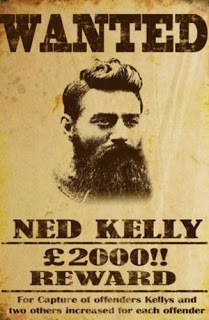
AUSTRALIANBUSHRANGERS
G'day folks,
Welcome to some background on Aussie bushrangers.
Bushranging – living off the land and being supported by or stealing from free settlers – was either chosen as a preferred way of life by escaped convicts or was a result of the lack of supplies in the early settlements.
While many bushrangers had populist reputations for being 'Robin Hood' figures; some bushrangers were brutal and others harassed the gold escorts and diggers returning from the goldfields. The popularity of bushrangers and their ethos of 'fight before surrender' was commemorated in bush songs and folklore.

Escaped convicts
Bushranging began soon after the British colonisation of Australia. The bush surrounding the settlement was unexplored, but this did not deter the desperate convicts from escaping – happy in their aim to make their way to Batavia (now the city of Jakarta on the island of Java, Indonesia) or China. While some perished, others joined up with Indigenous people and others took to bushranging.
In the early days of Van Dieman's Land (now Tasmania), the settlement was faced with starvation due to the failure of supply ships to arrive. In 1805, authorities released several convicts, gave them arms and sent them into the bush to survive from hunting. Many learnt to survive and joined others. In the early days, a man could also choose to give himself in, receive the mandatory 50 lashes and be back in the system to serve the rest of his time. Later, bushrangers usually suffered the death penalty after capture.
The first bushrangers, 1790s–1820s
The first bushranger was John Caesar (alias Black Caesar), a former West Indian Negro slave and petty thief. Black Caesar escaped into the bush in 1790 with a musket where he later joined five or six other escaped convicts. This was the first of many attempts by Black Caesar, who survived by hunting and fishing in the bush as well as receiving food and musket shot provided by sympathetic settlers. Black Caesar's repeated escapes caused Governor John Hunter to offer a reward of five gallons of rum, which eventually resulted in him being captured and shot.
Convicts who bolted to the bush were also often helped by settlers or farmers sympathetic to their plight. Among the farmers were many ex-convicts who had served their terms and been granted a ticket-of-leave.
Wrongful arrests and improper practices by local police also played a part in driving men to bushranging. It could be said that these men had nothing at all to lose, even if being outlawed meant living in constant fear and desperation.

Martin Cash – 'The only bushranger to die in his own bed', 1820–1840s
Martin Cash was convicted in county Cork, in 1820, for jealously firing at a suitor to his young mistress. Soon after arriving in Botany Bay in 1828, he was working as a farmhand, innocently branding cattle, when he was told that the cattle were stolen. Cash immediately left for Van Dieman's Land with his partner Bessie Clifford. Twelve months later, after two false accusations which were dismissed in court, he was convicted for beating the arresting officer and sentenced to seven years' imprisonment.
After two unsuccessful attempts at escape which added years to his sentence, Cash finally escaped and formed one of the marauding gangs in Van Dieman's Land – committing 'hold-ups, shootings, robberies, fights and brawls'. Eventually, after they falsely arrested Bessie, he was lured into Hobart town where he was captured.
Bushranger to constable, 1850s–1878
Sent to Norfolk Island, Cash became a model prisoner and served only 10 years of his life sentence before he was released. While on Norfolk Island, he married Mary Bennett with whom he returned to Tasmania. Norfolk Island was closed down and its prisoners transferred to Tasmania. Cash was made a constable in July 1854, and on 19 September was granted his ticket-of-leave.Back in Tasmania, he was appointed as overseer of the gardeners in the Government Domain and built a house on 160 acres of land at Glenorchy. Unfortunately, their only son Martin, born in 1855, died of rheumatic fever in 1871. Cash was said to have died of a broken heart in 1878 in his own bed.

'Bold' Jack Donohoe 'The last of the convict outlaws', 1825–1830s
One of the most famous bushrangers was 'Bold' Jack Donohoe, known as the 'Wild Colonial Boy'.
Soon after being transported to Botany Bay from Dublin in 1825, Jack Donohoe took up with two other Irish convicts, robbing bullock drays on the Windsor Road, west of Sydney. Donohoe escaped his hanging after he broke free from the court. Donohoe and a new gang of Irish and English escaped convicts ranged across the Liverpool, Parramatta and Windsor districts, eventually extending as far as Bathurst in the west, Yass to the south and the Hunter River to the north.
Donohoe's gang robbed in the 'Robin Hood' style, taking from the rich and fencing their booty through the poor settlers in the district. Once, upon recognising the explorer Charles Sturt, when robbing his farmhouse, they returned all his goods.
Donohoe endeared himself to ex-convicts and sympathetic settlers. Newspaper reports between 1827 and 1830 noted Donohoe and his gang as 'remarkably clean' bushmen, dressed in a raffish style. 'Bold' Jack was described as fitted out in 'black hat, superfine blue cloth coat lined with silk... plaited shirt... laced boots'.
When he was eventually shot and captured on 1 September 1830, Donohoe was noted as being 'five feet four in height, brown freckled complexion, flaxen hair and blue eyes'. On seeing the troopers, Donohoe was reported to have thrown his hat in the air and said 'Come on... we're ready'.
The Wild Colonial Boy
'Bold' Jack Donohoe had several ballads penned to commemorate his exploits in NSW, and even several versions of the most famous bushranging ballad of them all – The Wild Colonial Boy. This song became Australia's first unofficial anthem and the anthem of the 19th century. This song was sung over and over again by generations of Australians until it was eventually banned for its 'seditious sentiment'. However, it would not die, and the name was changed to Jack Doolan, or Jim Doolan or John Dowling, and then the lyrics changed so that the real events were hardly recognised – becoming part of Australian folklore. Eventually the authorities had to give up in banning it being sung.
The ethos of the song is captured in the line: 'I'll fight but not surrender', cried the Wild Colonial Boy.
It is known that the Wild Colonial Boywas sung heartily in the Glenrowan Hotel, the night before Ned Kelly was captured in 1880 and later by striking shearers in Queensland during the strikes of the 1890s.
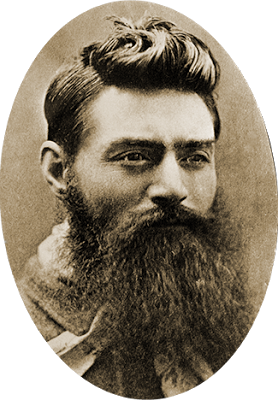
The gold diggings and Black Douglas, 1850s–1860s
After gold was discovered in 1851, first in Bathurst, NSW and then in the central Highlands of Victoria, bushrangers would hold up travellers and ask whether they were 'going up' or 'coming down'. It was common on the Bendigo and Ballarat for bushrangers to take into the bush anyone who was 'coming down', tie them to a tree and remove their gold receipts and cheques. The bushrangers then continued on down to Melbourne to cash the cheques and take possession of the gold.
In 1852, black trackers were brought in as native troops to tackle this practice of bushranging, as well as policing the gold diggings and escorting gold to Melbourne. Although they were very effective and popular they were disbanded in 1853.
Black Douglas was a notorious 'Mulatto Indian' who ran a bushranging operation between Melbourne and Bendigo. Hundreds of diggers made their way up this road daily. One traveller, recorded seeing 'sixteen poor fellows fastened to a log' by that 'notorious robber Black Douglas'.
Black Douglas's headquarters were three miles from the Alma goldfield near Maryborough, and his gang's method was to rob the diggers' empty tents during the day and the shops at night. Black Douglas and his gang were captured when the diggers, fed up with the thieving, surrounded their tents and burnt them to the ground. Douglas was overpowered only after he was wounded. He was carted to Maryborough with an escort of more than 200 miners.
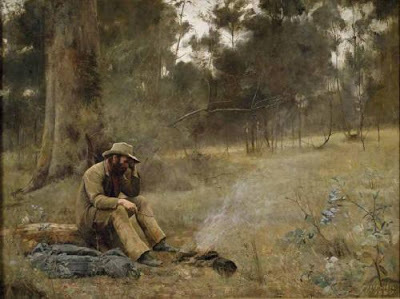
Fight before surrender
Bushranging was said to be brought under control by the Felons Apprehension Act 1865 (NSW), which allowed anyone to shoot bushrangers without need of arrest and trial, introduced to curb the activities of Ben Hall and his gang in 1865.
Bushranging was said to have ended with the shooting of the Kelly Gang in 1880. The verses of the Wild Colonial Boy reflect the popularist reputations of the bushrangers and their ethos of 'fight before surrender'.

Clancy's comment: I love stories about bushrangers. Americans had the Wild West, but we had some amazing characters also. Some of these guys are mentioned in one of my next books - IRISH GOLD. Stay tuned folks.
I'm ...


Modern bushrangers
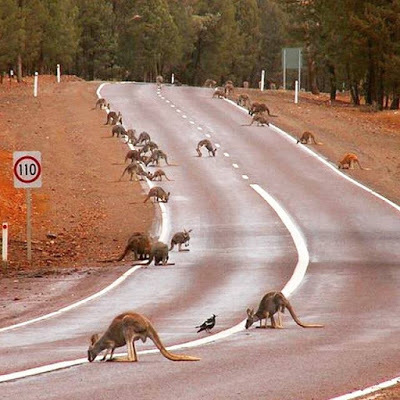
Published on June 14, 2016 15:57
June 13, 2016
14 June 2016 - OLD AGE

OLD AGE
G'day folks,
Here are some quotes on old age that will make you smile ... Or sit up and think.





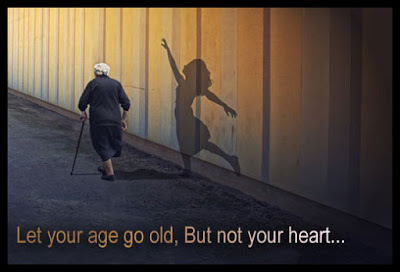

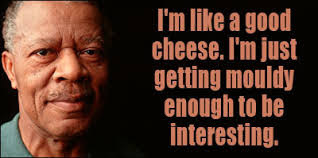





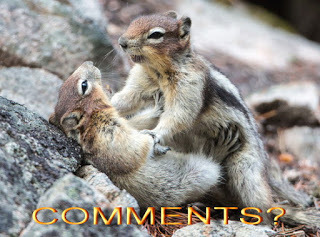
Clancy's comment: There ya go folks. They say you are only as old as you feel. Mm ... Today I feel ...
I'm ...


Published on June 13, 2016 15:39
June 12, 2016
13 June 2016 - SMALLPOX

SMALLPOX
G'day folks,
Welcome to some facts about a dreaded disease that has killed many people over the ages.
On May 8, 1980, the World Health Organization officially pronounced victory in the fight against smallpox, confirming that no known cases of the dreaded killer existed anywhere on the planet. Take a look back at the only human infectious disease ever to be eradicated.
Smallpox is believed to have first infected humans around the time of the earliest agricultural settlements some 12,000 years ago. No surviving evidence of it, however, predates the so-called New Kingdom of Egypt, which lasted from about 1570 B.C. to 1085 B.C. A few mummies from that era contain familiar-looking skin lesions. Ramses V, for example, who ruled for roughly four years in the 12th century B.C., looks to have had the raised bumps on his face and body for which smallpox is named (it’s derived from the Latin word for “spotted”). Moreover, an ancient Egyptian papyrus scroll briefly describes what could be smallpox, as do Hittite clay tablets. The Hittites, who lived in the Middle East, even accused the Egyptians of infecting them during a war between the two empires.

Many historians speculate that smallpox likewise brought about the devastating Plague of Athens in 430 B.C. and the Antonine Plague of A.D. 165 to 180, the later of which killed an estimated 3.5 million to 7 million people, including Emperor Marcus Aurelius, and hastened the decline of the Roman Empire. At any rate, it reached Europe no later than the 6th century, when a bishop in France unmistakably described its symptoms—a violent fever followed by the appearance of pustules, which, if the patient survived, eventually scabbed over and broke off. By that time, the contagious disease, caused by the variola virus, had spread all across Africa and Asia as well, prompting some cultures to worship special smallpox deities.
In the Old World, the most common form of smallpox killed perhaps 30 percent of its victims while blinding and disfiguring many others. But the effects were even worse in the Americas, which had no exposure to the virus prior to the arrival of Spanish and Portuguese conquistadors. Tearing through the Incas before Francisco Pizarro even got there, it made the empire unstable and ripe for conquest. It also devastated the Aztecs, killing, among others, the second-to-last of their rulers. In fact, historians believe that smallpox and other European diseases reduced the indigenous population of North and South America by up to 90 percent, a blow far greater than any defeat in battle.
Recognizing its potency as a biological weapon, Lord Jeffrey Amherst, the commander-in-chief of British forces in North America during the French and Indian War, even advocated handing out smallpox-infected blankets to his Native American foes in 1763.
Knowing that no one can contract smallpox twice, survivors of the disease were often called upon to try and nurse victims back to health. Throughout much of the last millennium, this involved herbal remedies, bloodletting and exposing them to red objects. One prominent 17th-century English doctor realized that those who could afford care actually seemed to be dying at a higher rate than those who couldn’t. Yet that didn’t stop him from telling a smallpox-infected pupil to leave the windows open, to draw the bed sheets no higher than his waist and to drink profuse quantities of beer.
Far more effective was inoculation, also called variolation, which involved taking pus or powdered scabs from patients with a mild case of the disease and inserting them into the skin or nose of susceptible, healthy people. Ideally, the healthy people would suffer only a slight infection this way and, in so doing, would develop immunity to future outbreaks. Some people did die, but at a much lower rate than those who contracted smallpox naturally. Practiced first in Asia and Africa, variolation spread to the Ottoman Empire around 1670 and then to the rest of Europe within a few decades. Its first proponent in the present-day United States was Cotton Mather, a Puritan minister best known for vigorously supporting the Salem witch trials. Benjamin Franklin, who lost a son to smallpox, was another early American supporter.

Variolation notwithstanding, smallpox continued wreaking havoc on princes and paupers alike. In the 17th and 18th centuries, it killed several reigning European monarchs, including Habsburg Emperor Joseph I, Queen Mary II of England, Czar Peter II of Russia and King Louis XV of France, as well as an Ethiopian king, a Chinese emperor and two Japanese emperors. Queen Elizabeth I of England and U.S. President Abraham Lincoln also apparently contracted smallpox during their time in office, though they fortuitously lived to tell the tale. Meanwhile, in Europe alone, an estimated 400,000 commoners were succumbing to smallpox annually.
Finally, in 1796, English doctor Edward Jenner performed an experiment that would, in good time, cause the virus’ downfall. By inserting pus from a milkmaid with cowpox, a disease closely related to smallpox, into the arms of a healthy 8-year-old boy and then variolating him to no effect, Jenner was able to conclude that a person could be protected from smallpox without having to be directly exposed to it. This was the world’s first successful vaccine, a term that Jenner himself coined. He tried to get his results published by the prestigious Royal Society, only to be told not to “promulgate such a wild idea if he valued his reputation.” Persisting anyway, his vaccine gradually started catching on. The advantages over variolation were many.
Unlike a variolated person, a vaccinated person could not spread smallpox to others. Moreover, the vaccine seldom left a rash and proved fatal in only the rarest of circumstances. “Future generations will know by history only that the loathsome smallpox existed and by you has been extirpated,” U.S. President Thomas Jefferson wrote to Jenner in 1806. The following year, Bavaria declared vaccination mandatory, and Denmark did the same in 1810.

Because the vaccine originally had to be transferred from arm to arm, its use spread slowly. It was also much less effective in tropical countries, where the heat caused it to quickly deteriorate. Nonetheless, one country after another managed to rid itself of the disease. The last reported U.S. case came in 1949. Spurred by two new technological advances—a heat-stable, freeze-dried vaccine and the bifurcated needle—the World Health Organization then launched a global immunization campaign in 1967 with the goal of wiping out smallpox once and for all. That year, there were 10 million to 15 million cases of smallpox and 2 million deaths, according to WHO estimates. Yet just a decade later, the number was down to zero. No one has naturally contracted the virus since a Somali hospital worker in 1977 (though a laboratory accident in England did kill someone in 1978).
After searching far and wide for any remaining trace of smallpox, the WHO’s member states passed a resolution on May 8, 1980, declaring it eradicated. “The world and all its peoples have won freedom from smallpox,” the resolution stated, adding that this “unprecedented achievement in the history of public health … demonstrated how nations working together in a common cause may further human progress.” Today, guarded laboratories in Atlanta and Moscow hold the only known stores of the virus. Some experts say these should be destroyed, whereas others believe they should be kept around for research purposes just in case smallpox somehow remerges.

Clancy's comment: Mm ... And now we have other types of diseases and social ills to deal with.
I'm ...

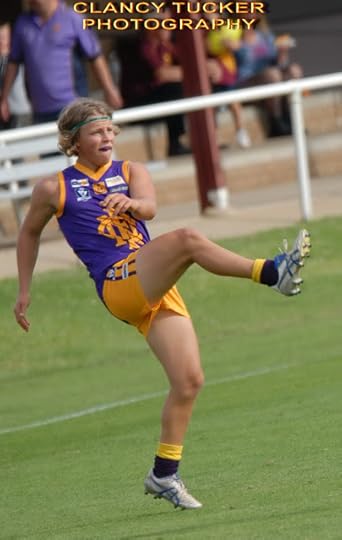
Published on June 12, 2016 16:08
June 11, 2016
12 June 2016 - EDWARD HAMMOND HARGRAVES
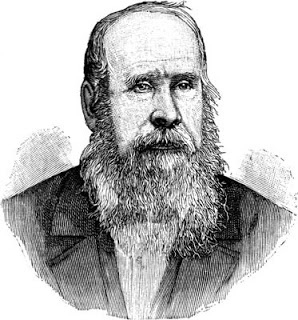
EDWARD HAMMOND HARGRAVES1816-1891
G'day folks,
Edward Hammond Hargraves was a gold prospector who claimed to have found gold in Australia in 1851, starting an Australian gold rush. Hargraves (1816-1891), gold rush publicist, was born on 7 October 1816 at Gosport, Hampshire, England, son of Lieutenant John Edward Hargraves and his wife Elizabeth, née Whitcombe.
Educated at Brighton Grammar School and Lewes, he went to sea at 14 and arrived at Sydney in 1832. He worked on a property at Bathurst, gathered bêche-de-mer and tortoise shell in Torres Strait and in 1834 took up 100 acres (40 ha) near Wollongong. In 1836 at Sydney he married Elizabeth, née Mackay. In 1839 they moved to East Gosford where he became an agent for the General Steam Navigation Co. and with her dowry bought land and built the Fox under the Hill Hotel. In 1843 he forfeited his property, left his wife to look after a store and took up land on the Manning River.
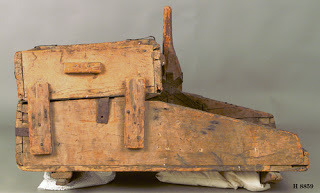
Hargraves sold out and sailed for California on 17 July 1849. He returned to Sydney in January 1851, planning to win a fortune not so much by finding gold but by claiming the government reward for discovery of a payable goldfield. On his way to the Wellington district he saw promising specimens at Guyong and on 12 February, with John Lister, found five specks of gold in Lewis Ponds Creek. In the next weeks he traversed much of the area with slight success, but his campaign depended on finding rich deposits so he enlisted Lister and William, James and Henry, sons of William Tom, to continue the search. Hargraves had taught them Californian panning techniques and how to make and use a wooden cradle.
Hargraves returned to Sydney in March and interviewed the colonial secretary (Sir) Edward Deas Thomson.Encouraged by news from the Tom brothers, Hargraves wrote to the Sydney Morning Herald describing in general terms the rich fields. When sure of the government reward some weeks later he announced in the press the specific areas where gold existed and left for Bathurst early in May. He ignored pleas by the Toms and Lister for secrecy, named the area Ophir and whipped up enthusiasm in the Bathurst district.
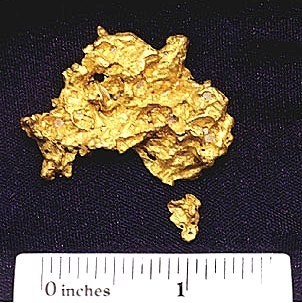
By 15 May over 300 diggers were at Ophir and the first gold rush had begun.
Although Hargraves exaggerated and falsified his finds he never denied his main purpose. The government gave him £10,000 and from 1877 an annual pension of £250. He was also showered with testimonials, valuable cups and other trophies. In 1851 be became a commissioner of crown lands for the gold districts and a justice of the peace. In 1853-54 Hargraves visited England, lived in style, met the Queen and in 1855 published Australia and its Gold Fields, which was probably ghosted. Some £3000 poorer he returned with a builder to erect, entirely of cedar, a fine house at Norah Head.

He entertained lavishly and by the early 1860s was virtually penniless. Invited by governments he prospected in Western Australia in 1862 and South Australia in 1863. In 1861 he had begun to appeal to the Victorian government for the balance of its £5000 reward, of which he had received only £2381 6s. 1d. in 1854. When petitions failed, he sought help in 1867 from James Butters who persuaded a member of the Legislative Assembly to move for payment. The motion was lost and Hargraves went to Melbourne and in the Age charged politicians with corruption. Inquiry by a select committee found none of his charges proven. Deserted by the manipulators he had tried to use, he claimed to be specially shocked by Butters who had paid his hotel bills as a fellow Freemason but cast doubts on his honesty.
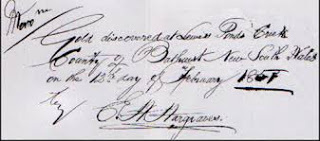
In New South Wales Lister and the Tom brothers realized too late that they too had been used by Hargraves. In 1853 a Legislative Council select committee heard long arguments about the 1851 events and, while upholding Hargraves's key role, recommended that £1000 be granted to the men taught by Hargraves and a similar amount to Rev. William Branwhite Clarke.
Hargraves's polemical account of the matter in his book did not silence the increasingly bitter Toms and Lister. From 1870 they bombarded parliament with petitions and campaigned in pamphlets and press.

Their persistence was rewarded in 1890 when a Legislative Assembly select committee found that although Hargraves had taught the others how to use the dish and cradle, 'Messrs Tom and Lister were undoubtedly the first discoverers of gold obtained in Australia in payable quantity', but the legend of Hargraves, 'the discoverer of gold' persists. He died in Sydney on 29 October 1891 and was buried in the Anglican section of Waverley cemetery. He was survived by two sons and three daughters and left an estate worth less than £375.

Clancy's comment: The gold era has always been my favourite part of our history. A future book in a few months will be called 'Irish Gold'. It's about the Irish on the goldfields, and also about bushrangers.
I'm ...
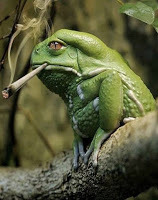

Published on June 11, 2016 16:07
June 10, 2016
11 June 2016 - JOHN TOLLIVER - Guest Author

JOHN TOLLIVER- Guest Author -
G'day folks,
Today, I interview an interesting author who was once a submariner.
Welcome, John ...
1. TELL US A LITTLE ABOUT YOURSELF AND YOUR WRITING JOURNEY.I come from a family of English teachers as both my mother and grandmother were English majors in college, and encouraged all the family members to read and write as an enjoyable outlet. I was a storyteller from about 5 years old, and was always considered the “dreamer”.
2. WHEN AND HOW DID YOU BECOME A WRITER?For the past 10 or so years I’ve had several stories in my head and now at the grand middle age of 58 I decided it was time to share some of them with the world
3. WHAT TYPE OF PREPARATION DO YOU DO FOR A MANUSCRIPT? DO YOU PLAN EVERYTHING FIRST OR JUST SHOOT FROM THE HIP? Mostly shoot from the hip. To me a story needs to be fluid, it needs to flow and change during the writing as you become more connected to the characters.
4. WHAT DO YOU ENJOY MOST ABOUT BEING A WRITER?Absolutely love creating characters from scratch. I love knowing every detail of their backstory (even when the reader may not). I think it’s absolutely imperative to know every nuance of a character you create, otherwise that character can lose his (her) genuine appeal
5. WHAT IS THE HARDEST THING ABOUT BEING A WRITER?I hate to see my characters suffer. I hate to see them in pain, I hate to see them suffer extreme emotional trauma, even though I know they must.
I also find it difficult on options on a storyline. The right answer ALWAYS comes un-expectantly while I’m driving, half asleep, or enaged in an activity with no access to a pen or paper. It never comes when I’m in fromt of a keyboard or when I have a pen in hand.
6. WHAT WERE YOU IN A PAST LIFE, BEFORE YOU BECAME A WRITER?A Submariner. My first career after college was joining the Navy and serving on Nuclear Submarines. After 6 years in the Navy, I spend the largest part of my career in Nuclear Chemistry. About 20 years ago I also started a business buying and selling precious gemstones called www.SimplySapphires.com , which has given me wonderful opportunities to travel the globe from the Opal mines of the Outback near Winton, Australia, to the cutting houses of Thailand, to the mining sites near Mt Kilimanjaro in Tanzania. The last few years I started volunteering my skills as a Mediator and Arbitrator in the New York State Courts.

7. WHAT IS YOUR GREATEST WRITING ACHIEVEMENT?The Reflection of Innocence 125K word book that I completed this year, it’s a Military Thriller that weaves Paranormal with Historical Fiction, and uses my background as a submarine sailor, as the characters safe zone
8. WHAT ARE YOU WORKING ON AT THE MOMENT? Promotion for The Reflection of Innocence and putting together an outline for a an idea I have about absolute power corrupts absolutely
9. WHAT INSPIRES YOU?My dreams, my dreams tell me stories almost every night
10. WHAT GENRE DO YOU WRITE?I love military thrillers with a twist
11. DO YOU HAVE ANY TIPS FOR NEW WRITERS?The best advice was a piece my mother gave me “The only thing that stops you from accomplishing ANYTHING in life is you, you can do ANYTHING if you put your mind to it”, and she literally meant anything
12. DO YOU SUFFER FROM WRITER’S BLOCK?No, I have so many stories in my head
13. DO YOU HAVE A PREFERRED WRITING SCHEDULE?I wish I was more disciplined in that regard, but I am like a water faucet with no regulator, once I start it flows beautifully
14. DO YOU HAVE A FAVOURITE WRITING PLACE?Sitting at my desk watching the dogs and they beg for my attention
15. WHAT IS YOUR GREATEST JOY IN WRITING?Letters and emails from people that connect to a character or story or principle
16. WHO IS YOUR FAVOURITE AUTHOR AND WHY?I think Tom Clancy, I loved his ability to capture technical detail in a story. I could see the vision of what he out on paper clearer than any movie could ever show me. I felt connected with many of his characters not just one or two.
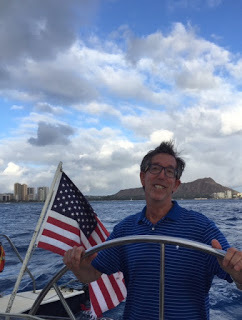
17. WHAT’S THE GREATEST COMPLIMENT YOU EVER RECEIVED FROM A READER?I never felt so connected to a character, I almost felt like I was intruding on his privacy reading your book
18. WHAT WAS THE WORST COMMENT FROM A READER?I think you droned on too much about what a drunk he was (the reader was right by the way)
19. WRITERS ARE SOMETIMES INFLUENCED BY THINGS THAT HAPPEN IN THEIR OWN LIVES. ARE YOU?Yes, I never felt like I fit in. I think it’s a feeling shared by every person in the world, and many of us use as a tool for self destructive behaviour. For me it led me to years of isolation, lonliness, and way too much relief from alcohol (sober about 20 years now)
20. OTHER THAN WRITING, WHAT ELSE DO YOU LOVE?Love art (surrealism), Music, My two dogs, and absolutely love to travel and meet readers
21. DID YOU HAVE YOUR BOOK / BOOKS PROFESSIONALLY EDITED BEFORE PUBLICATION?Yes I did
22. DESCRIBE YOUR PERFECT DAY.It would have to during a holiday as then I could sleep to 9 AM (never happens at home though, since my doberman’s internal clock wakes up at 5AM), shower, and watch the waves on the beach for the day. I cherish seeing children and their parents playing
23. IF YOU WERE STUCK ON A DESERT ISLAND WITH ONE PERSON, WHO WOULD IT BE? WHY?Anyone but a Kardashian. If I had to pick, probably Anderson Cooper, seems bright and funny
24. WHAT WOULD YOU SAY IF YOU HAD THE CHANCE TO SPEAK TO WORLD LEADERS?Stop playing to the audience and do what is right, rather than what is the flavor of the day
25. WHAT ARE YOUR PLANS FOR THE FUTURE?Travel more, I have visited about 50 countries and want to at least double that
26. WHAT ARE YOUR VIEWS ON BOOK TRAILERS? DO THEY SELL BOOKS?I hope so, just made one
27. DO YOU SEE YOURSELF IN ANY OF YOUR CHARACTERS? Yes
28. DOES THE PUBLISHING INDUSTRY FRUSTRATE YOU? Yes, its typical big business, no one looks at the essence, only the cover
29. DID YOU EVER THINK OF QUITTING? Never, I never give up
30. WHAT WAS YOUR FAVOURITE MANUSCRIPT TO WRITE? WHY?I only wrote one, so it would have to be The Reflection of Innocence

31. HOW WOULD YOU DEFINE ‘SUCCESS’ AS A WRITER. Understanding the pain and joy about the people and things your write about
32. WHAT SHOULD READERS WALK AWAY FROM YOUR BOOKS KNOWING? HOW SHOULD THEY FEEL? I want them to see things they might not of before. I want them to question things and not just accept things at face value. To know that the world is not black/white unless they choose it to be
33. WOULD YOU LIKE TO HAVE YOUR BOOKS MADE INTO MOVIES? EVER WRITTEN A SCREENPLAY?I would love it
34. HOW MUCH THOUGHT GOES INTO DESIGNING A BOOK COVER?To me, I need a cover to help me create. We designed the cover about half way through the story, and it really helped facilitate my wring
35. WHAT’S YOUR ULTIMATE DREAM?People asking me to sign a book for them at Barnes & Noble in NYC
36. WRITING IS ONE THING. WHAT ABOUT MARKETING YOU, YOUR BOOKS AND YOUR BRAND? ANY THOUGHTS?I think social media is the key to marketing any book these days. The big publishers seem to exist to publish celebrity bios, and like the movie industry seems to have isolated themselves from anything new
37. ARE YOUR BOOKS SELF-PUBLISHED? Yes
38. DESCRIBE YOURSELF IN FIVE WORDS.Charming, Funny, Stubborn, Generous, and Gay
39. WHAT PISSES YOU OFF MOST?People talking on their phones while they drive
40. WHAT IS THE TITLE OF THE LAST BOOK YOU READ? GOOD ONE? Give and Take: A Revolutionary Approach to Success by Adam Grant EXCELLENT BOOK
41. WHAT WOULD BE THE VERY LAST SENTENCE YOU’D WRITE?He tried his best

42. WHAT WOULD MAKE YOU HAPPIER THAN YOU ARE NOW? CARE TO SHARE?Find Love
43. ANYTHING YOU’D LIKE TO ADD? Very fortunate, and very grateful for every day I live
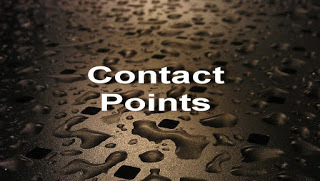
BOOK TRAILER
AMAZON
HOME PAGE

Clancy's comment: Thanks, John. Interesting cover. Keep going. Get cracking on that next book.
I'm ...

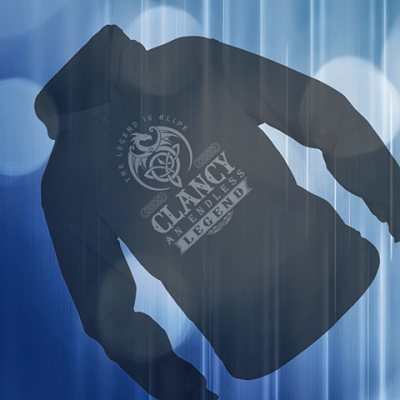
Published on June 10, 2016 15:28
June 9, 2016
10 June 2016 - SOME BRITISH SLANG

SOME BRITISH SLANG
G'day folks,
Here is some more slang from our friends in the UK.
Rugger - This is short for "rugby". It is a contact sport similar to your football but played in muddy fields during winter and rain. Not only that, but the players wear almost no protection!
Rumpy pumpy - Another word for hanky panky, or a bit of nookie! Something two consenting adults get up to in private! Theoretically!
Sack/sacked - If someone gets the sack it means they are fired. Then they have been sacked. I can think of a few people I'd like to sack!
Sad - This is a common word, with the same meaning as naff. Used in expressions like "you sad b***ard".
Scrummy - This is a word that would be used to describe either some food that was particularly good (and probably sweet and fattening).
Scrumping - To go stealing - usually apples from someone elses trees!
Send-up - To send someone up is to make fun of them. Or if something is described as being a send-up it is equivalent to your take-off. Like Robin Williams does a take-off on the British accent - quite well actually!
Shag - Same as bonk but slightly less polite. At seventies parties watch the look of surprise on the Englishman's face when an American girl asks him if he would like to shag. Best way to get a Brit to dance that I know! You can even go to shagging classes!
Shagged - Past tense of shag, but also see knackered.
Shambles - If something is a shambles it is chaotic or a real mess. It's also a very old name for a slaughterhouse. So if you ever visit The Shambles in York, then the name does not refer to the somewhat shambolic nature of the buildings; it's a reference to the site it's built on - an old slaughterhouse!
Shambolic - In a state of chaos. Generally heard on the news when the government is being discussed!
Shirty - "Don't get shirty with me young man" was what my Dad used to tell me when I was little. He was referring to my response to his telling off for doing some terrible little boy thing. Like tying my brother to the back of Mum's car or putting my shoes in the toilet. It meant I was getting bad tempered.
Shite - This is just another way of saying shit. It is useful for times when you don't want to be overly rude as it doesn't sound quite as bad!
Shitfaced - If you hear someone saying that they got totally shitfaced it means they were out on the town and got steaming drunk. Normally attributed to stag nights or other silly events.
Shufti - Pronounced shooftee, this means to take a look at something, to take a butchers! It's an old Arabic word, picked up by British soldiers during World War II, in North Africa.
Sixes and sevens - If something is all at sixes and sevens then it is in a mess, topsy turvy or somewhat haywire!
Skew-whiff - This is what you would call crooked. Like when you put a shelf up and it isn't straight we would say it is all skew-whiff.
Skive - To skive is to evadesomething. When I was a kid we used to skive off school on Wednesdays instead of doing sports. We always got caught of course, presumably because the teachers used to do the same when they were fourteen!
Slag - To slag someone off, is to bad mouth them in a nasty way. Usually to their face.
Slapper - A slapper is a female who is a bit loose. A bit like a slag or a tart. Probably also translates into tramp in American.
Slash - Something a lager loutmight be seen doing in the street after his curry - having a slash. Other expressions used to describe this bodily function include; siphon the python, shake the snake, wee, pee, piss, piddle and having a jimmy.
Sloshed - Yet another way to describe being drunk. Clearly we need a lot of ways to describe it since getting plasteredis a national pastime.
Smarmy - Another word for a smoothy, someone who has a way with the ladies for example. Usually coupled with "git" - as in "what a smarmy git". Not meant to be a nice expression, of course.

Clancy's comment: What a shambles, eh? Jot any down for future use?
I'm ...


Published on June 09, 2016 15:12
June 8, 2016
9 June 2016 - INDONESIA

INDONESIA
G'day folks,
Welcome to life in Indonesia, a country with 250 million people, courtesy of Travelfish.
Indonesia, a Southeast Asian nation made up of thousands of volcanic islands, is home to hundreds of ethnic groups speaking many different languages. It’s is known for its beaches, volcanoes and jungles sheltering elephants, tigers and Komodo dragons. On the island of Java lies Indonesia's vibrant, sprawling capital, Jakarta, and the city of Yogyakarta, known for gamelan music and traditional puppetry.
The sprawling archipelago of Indonesia is a highly undertouristed destination with an amazing array of attractions to offer independent through to luxury travellers. Aside from the popular island of Bali, Indonesia is one of Southeast Asia's least explored countries in terms of backpacker hordes and mass tourism.
While in much of Southeast Asia the general rule is to follow the backpackers to find the beautiful places to stay, in Indonesia you do well chasing the heels of scuba divers and surfers. These are the travellers who have for decades caught dodgy planes, crowded ferries, creaking trains and rusty buses to get to the most stunning, out-of-the-way places in search of the perfect tube or to glimpse a rare underwater species.
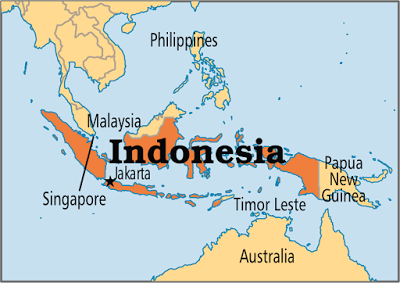
Indonesia can be hard work to travel through properly — and the limiting 60-day tourist visa does not help those really wanting to explore the 17,000-island-strong archipelago fully, given how infrequently some ferries travel. But with a little good planning, a lot of energy and bundles of enthusiasm, Indonesia more than rewards those who make the effort to discover its secrets.
Surfing and scuba diving aside, Indonesia offers excellent outdoor activities to enjoy, from trekking to the peaks of smouldering volcanoes on remote islands and hikes through lush rainforests or terraced rice paddies, through to banana-boat riding or parasailing off the tourist-packed beaches of Bali — to each their own.
Culturally, Indonesia is highly diverse, as is recognised in the national slogan of "Unity in Diversity"; travelling across the nation is really like experiencing a romp through a few dozen countries, each with their own language, traditions, cuisine and atmosphere.
In Aceh, at the northwestern point of Sumatra island, the population is comprised mostly of conservative Muslims, unlike the rest of the country where Islam is slightly more freewheeling or co-exists with Christianity and animism. In the provincial capital of Banda Aceh, rebuilt after the devastating 2004 Asian tsunami roared through parts of it, cafes buzz with young and fashionable Acehnese, but men in traditional attire still sip their thick coffees in smoke-filled wooden coffee houses.

Strike out further afield to sightsee through the stunning mountains where GAM once staged its deadly war of independence; these days the former fighters may be cultivating fair-trade coffee. Offshore, Nias and Simeulue islands have long drawn surfers to their excellent breaks. The rest of Sumatraboasts plenty of natural attractions, such as Lake Toba, the largest and deepest volcanic crater lake in the world, or the surf breaks off the Mentawai islands.
Anak Krakatoa, the volcano left behind after the massive eruption of Krakatoa in 1883, lies just off south Sumatra on the way to Java, and intermittently threatens to again erupt, though it would not be with the force of the 19th century eruption, which was heard in Australia.
Indonesian's main island, Java, is the world's most densely populated island but still offers deserted landscapes for those seeking solitude, as well as the crowded, chaotic and polluted national capital of Jakarta. Most tend to either love or hate the mega-city, with its traffic snarls and rubbish-clogged rivers contrasting the gleaming malls and fashionably attired, designer-clad rich. Java is also home to the ancient Buddhist Borobudur temple complex, a stone's throw from the interesting university city of Yogyakarta.
The southern portion of Borneo, Kalimantan, is Indonesian territory (Brunei and the Malaysian states of Sabah and Sarawak lie to the north) and home to the longhouse-dwelling Dayaks. Sadly the forests here are quickly disappearing, making way for palm oil plantations and other development. This means native orangutans, among other species, are threatened, though sanctuaries seek to save and rehabilitate those injured in logging and other accidents.
Further east of Borneo lies Sulawesi, an octopus-shaped island with another entire set of attractions, including the cities of Makassarand Manado, spectacular diving, numerous volcanoes, gorgeous deserted white sand beaches and interesting historical sites. The people in the Tana Toraja area stage elaborate funerals which are definitely worth trying to see.
Further east again are the Moluccas-- or Maluku Islands — or Spice Islands, where nutmeg, mace and cloves are among the fabled spices the group is famed for producing. National parks offer trekking opportunities, there's a sprinkling of volcanoes, more beautiful beaches and some World War II historical sites to see as well.

Back down south and to the east of Java lies the tourist magnet of Bali. The travel path is well trodden in this Hindu enclave, but for good reason: the island is rich in culture and possesses spectacular geography. These days Westerners can also enjoy sophisticated restaurants, bars and luxury resorts, from the beaches of Kuta and Seminyakthrough to the artistic centre of Ubud.
As one heads further east from Bali, poverty generally increases as infrastructure deteriorates and land gets less fertile. This is definitely an area of the world intrepid travellers will love.
Between Bali and Lombok lies the Wallace Line, the mysterious boundary where flora and fauna quite dramatically switch from being "Asian" — think jungle, elephants and tigers — to "Australasian" — think scrubby, Komodo dragons and cockatoos.
While Lombokitself offers rugged, fascinating travel, the nearby Gili Islands is a spot as popular for its parties as much as its breathtaking beaches. Heading east, if you're ambitious you could island hop from Lombok to Sumbawa, Komodo, Rinca, Sumba, Floresand West Timor, with plenty of smaller islands, many uninhabited, in between.
Highlights of the region include seeing the Komodo dragon, the world's largest lizard, in its natural habitat; the fascinating tribal culture of Sumba — where horses are also bred; and the crater lakes and amazing natural beauty of Flores.
Finally, there Indonesia's remote Papua, with its tribes, Christian missionaries and untamed scenery. As with pretty much all of eastern Indonesia, Papua is well off the beaten path and travellers looking for an experience to remember will no doubt find it here.

What not to miss
Dawn at Borobudur. Climb a volcano -- any one will do. Savour Javanese food and scenery. Experience the wealth of culture in Bali matched only by the island's jaw-dropping beauty. Climb another volcano on Lombok. Check out the dragons on Komodo. Chill at Sumatra's Lake Toba.
When to go
April through to November is the dry season. Bali sees its peak tourism across European summer (July and August) and Australian Christmas holidays. Bali gets the bulk of Indonesia's tourism, other spots are deserted in comparison.

TRAVELFISH

Clancy's comment: Yes, another amazing destination. Wonderful people, great things to see, and the food is superb. This country also has some of the most beautiful women and kids in the world.

I'm always seeking interesting people to interview. So, put your thinking caps on and ask some of your friends and colleagues to contact me via my email:
clancy_tucker@hotmail.com
As you know, I've interviewed hundreds of interesting folks over the past few years, and future guests do not have to be writers, poets, or authors. I would certainly love to interview some teenagers, senior citizens and ordinary folks who have had an interesting life. Don't be shy!
Thanks.
I'm ...

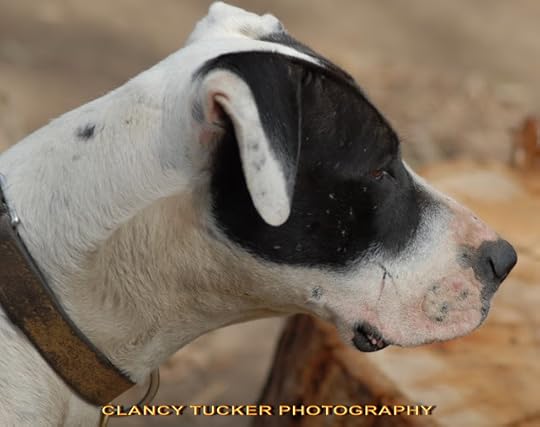
Published on June 08, 2016 15:52
June 7, 2016
8 June 2016 - MORE AUSSIE QUOTES

MORE AUSSIE QUOTES
G'day folks,
Welcome to some more quotes from Australians.
When you play test cricket, you don't give the Englishmen an inch. Play it tough, all the way. Grind them into the dust
Don Bradman - Cricket player
It is better to be defeated on principle than to win on lies
Arthur Calwell - Politician
If the guy next to you is swearing like a wharfie he's probably a billionaire. Or, just conceivably, a wharfie -
(Australian observation)
A Man of Business is one who becomes possessed of other people's money, without bringing himself under the power of the law (Marcus Clarke - historian)
A man may be a tough, concentrated, successful money-maker and never contribute to his country anything more than a horrible example
(Robert Menzies - Prime minister)
The best way to help the poor is not to become one of them
(Lang Hancock - mining magnate)
Ordinary people need to lead and not sit there and think that governments are going to spoon feed them
(Ian Kiernan - organiser of Clean up Australia Day)
A wowser...is a man who, being entirely destitute of the greater virtues, makes up for their lack by a continuous denunciation of little vices.
(William Holman MLA)
It is long accepted by the missionaries that morality is inversely proportional to the amount of clothing people wore -
(Alex Carey)
A wowser is...a person who is more shocked at seeing two inches of underskirt than a mountain of misery
(John Scaddan, premier of Western Australia)
There is nothing so costly to the state as a ruined life
(Catherine Spence - Social and political reformer, writer and teacher)
Shoot straight you bastards. Don't make a mess of it
(Harry (Breaker) Morant - executed soldier and poet)
The most intense hatreds are not between political parties but within them
(Phillip Adams - journalist)
The difference between a stupid man and a wise one is the stupid man's inability to calculate the consequences of the action. The same goes for government
(Brian Penton - journalist)
Encourage your people to be committed to a project rather than just involved in it. You know the difference between involvement and commitment don't you? In a meal of bacon and eggs, the chicken is involved, the pig is committed
(Richard Pratt - billionaire)
Australians will never acquire a national identity until individual Australians acquire identities of their own
(Patrick White - author)

Those who lose dreaming are lost - (Australian Aboriginal proverb)
It's like the axe that's had two new blades and three new handles but otherwise is just as it was when grandfather bought it -
(Australian proverb)
The law locks up the man who steals the goose from the common, but leaves the greater criminal loose who steals the common from the goose
(convict saying)
If I had a donkey What Wouldn't go, do you think I'd wallop him, oh dear no
(convict saying)
Why are people so unkind?
(Kamahl - singer)
One gets tired of the role critics are supposed to have in this culture: It's like being the piano player in a whorehouse; you don't have any control over the action going on upstairs (Robert Hughes - author and critic)
Nothing they design ever gets in the way of a work of art
(Robert Hughes - author and critic)
We want to create a sort of linguistic Lourdes, where evil and misfortune are dispelled by a dip in the waters of euphemism
(Robert Hughes - author and critic)
Dog must not steal from dog
(convict saying)
Such is life
(Ned Kelly - bushranger)
If my lips teach the public that men are made mad by bad treatment, and if the police are taught that they may exasperate to madness men they persecute and ill treat, my life will not be entirely thrown away
(Ned Kelly - bushranger)
I do not pretend that I have led a blameless life, or that one fault justifies another, but the public in judging a case like mine should remember that the darkest life may now have a bright side
(Ned Kelly - bushranger)
I have outlived that care that curries public favour or dreads the public frown...let the hand of law strike me down if it will, but I ask that my story be heard and considered
(Ned Kelly - bushranger)
If you go out for a big night and by some misadventure you end up in a prison cell, you can count on your best friend to bail you out, but your best mate will be in there besides you (Australian observation)
Out in the bush, the tarred road always ends just after the house of the local mayor (Australian observation)
There is nothing more Australian than spending time in somebody else's country
( anon)

The wowser mistakes the world for a penitentiary and themselves as the warden (Australian observation)
The cricket bat is mightier than the pen and the sword combined
(anon)
It may be that your sole purpose in life is to serve as a warning to others
(anon)
We cultivated our land, but in a way different from the white man. We endeavoured to live with the land; they seemed to live off it
(Tom Dystra - Aboriginal man)
Some mistakes are too much fun to only make once
(anon)
A truly happy person is one who can enjoy the scenery on a detour
(anon)
Before you criticise someone, you should walk a mile in their shoes. That way, when you criticise them, you're a mile away and have their shoes
(anon)
The Australian nation is a nation of blow-ins and we've got the lot here – bog Irish, reffos, dagos, wogs, slopes, you name it
(Bill Leak - cartoonist)
A fair go for all, regardless of ethnicity, race, religion, except for Poms, Seppos and Kiwis
( anon)
They who came here in chains, who were lashed while they worked in convict gangs at Port Arthur. They who like many others were driven through starvation or oppression from their home-lands to the shores of this new country, Australia. They, who for a multitude of reasons that hopefully, I or my children will never witness or experience, decided not to harbour grudges or discontent but rather to look to the future. They who embraced this country as their own and said; "let's get on with it, this is a new land, this is our home.
(Dennis O'Keeffe - Musician)
What rugby league teaches you is that everything is temporary. The dead-set certainty is that there's adversity coming as well as success. You may as well make the most of it while you can.
(Matthew Elliott - football coach)
I say to the young blokes, when you get asked for an autograph, don't knock it back because there'll be a time where no one will ask you
(Brett Kenny - footballer)

Clancy's comment: There are some rippers here.
I'm ...


Published on June 07, 2016 15:38



